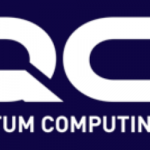IonQ’s Peter Chapman Writes “Quantum Computers Will Need to Be Networked to Achieve Scale”

(Wired.co.uk) Whatever their underlying technology, quantum computers will need to go modular and be networked to achieve scale. Peter Chapman, CEO and President on IonQ, is the author.
In 2021, we will see the first demonstration of modular quantum computers that are “networked” for the purpose of building a single, but much larger, example. This will happen in the real-world quantum industry, outside of theoretical experiments in academic labs, and will show us a clear path towards creating more powerful quantum computers.
There are two proven ways to build a faster, more powerful computer. The first is to increase the performance of individual components, such as the speed of the processor. The second is to go modular and increase the number of components, adding, for example, multiple processors.
The same two approaches apply to quantum computers. IonQ, IBM, Google and others are working on bigger and better quantum processing units (QPUs), the equivalent of CPUs in traditional computing. But it is also possible to get to scale by simply building more quantum computers and “networking” them, as we see with the cloud today. As your computational needs increase, the number of servers escalates to meet the demand.
To allow multiple quantum computers to work together, we must entangle qubits across QPUs. Entanglement allows two qubits to remain connected so that actions performed on one affect the other, even when separated by great distances. After the qubits are entangled, they no longer care about locality, distance or source of the qubit, meaning there is no overhead to running them after the initial setup cost.
























